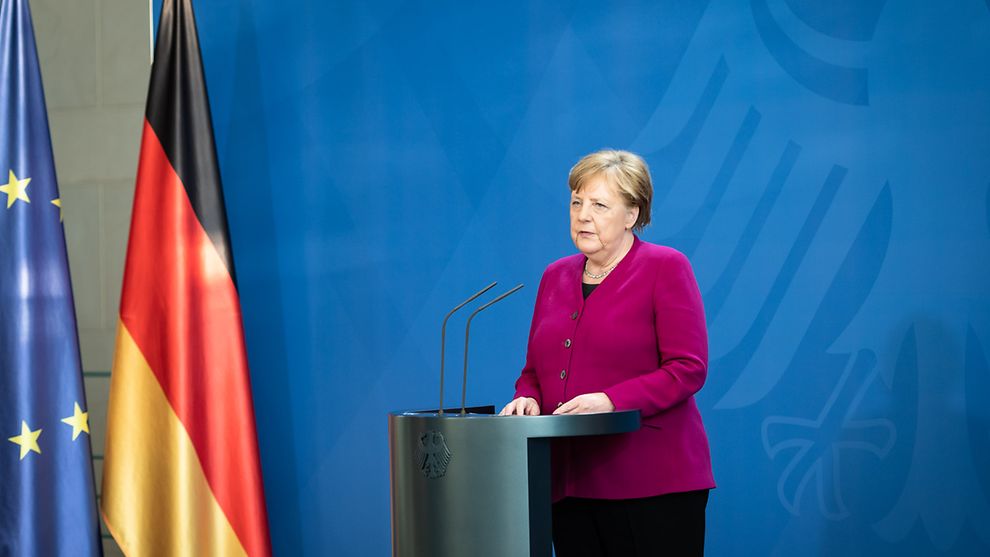Here are the first green turmoil in Germany

The German business newspaper Handelsblatt reveals that, immediately after the elections on September 26, a sting is on the way for German motorists. Here because. The article by Tino Oldani for Italy Today
The first signs are coming from Germany about the bill to be paid for the Green Deal, launched by the EU Commission in mid-July to decarbonise the European economies. The economic daily Handelsblatt reveals that, immediately after the elections on 26 September, a sting is coming for German motorists: the price of gasoline could rise to 2.20-2.50 euros per liter. A monstrous rise in price, due to the increase, considered inevitable, of the tax component linked to decarbonisation, imposed by the Green Deal on the 27 EU countries.
The newspaper's forecast is based on a study by the research center Instituts fur Witschaftsforschung, which states that to achieve the climate goals set by the European Union there will be a gasoline tax increase of around 70 cents per liter. All this following the fact that Germany will record a surplus in carbon (CO2) production of 7 million tons at the end of this year, set to rise to 22 million tons next year. An imbalance that, for the Green Deal, must be sanctioned on the basis of the Ets (Emission trading system) mechanism, whereby the excess carbon produced by some particularly polluting industrial sectors (steel, cement, iron, fertilizers, power plants), to which the EU has added transport and domestic heating, will cost 50 euros for every kilo of CO2 in excess, with a tendency to rise to 90 euros by 2030.
Obviously, the fiscal blow will hit all the sectors concerned, causing both industrial production costs and final prices to rise. The research, however, focuses mainly on the consequences for German families who have one or two cars, stating that those who live in the countryside, and have two cars, will end up paying 1,800 euros a year more for gasoline, while urban families, being able to use public means of transport, will suffer an average drain of 700 euros. Of all this, Handelsblatt underlines right from the title, the political leaders in the running for the chancellery are careful not to speak in their rallies. And this does them no credit: "The climate goals were set by politicians, who announced them as an achievement, all good as long as you play with money on paper, but much less good when they have to account for it to less well-off families."
The German newspaper points the finger above all at the three main candidates for the chancellery. The Social Democrat Olaf Scholz (SPD) and the Christian Democrat Armin Laschet (CDU-CSU) reproaches for "acting like Indians", after "their parties have gone too far with promises to make the German economy green, while now the moment is approaching to pay the bill with the money, as always, of the citizens ». When to the green Annalena Baerbock, underlines yet another mistake: the proposal to introduce new speed limits, in order to limit the consumption of petrol, a sign that for the Greens the fiscal blow is fine, but not enough.
We will soon see, after the vote on September 26, if and to what extent the cost of the EU Green Deal could have influenced the rush to the chancellery to replace Angela Merkel. As for Italy, where the political debate has been revolving around the Green Pass for weeks, the risk that the price of gasoline will repeat what is happening in Germany, a leading country over the rest of Europe, cannot be excluded. After all, the European Green Deal concerns all EU countries and is based on the "Fit for 55" project presented by Ursula Von der Leyen in mid-July as "the most ambitious plan in the world" to combat polluting emissions, with the aim declared to reduce them by 55% by 2030 and reach climate neutrality by 2050.
As I have already explained ( ItaliaOggi of 16 July), in addition to setting ambitious limits on CO2 emissions, that plan has for the first time put the hands of the pockets of European taxpayers, introducing new taxes, such as the carbon tax, which actually serve to finance the EU Next Generation, known as the Recovery Plan, or the famous 750 billion to relaunch the EU economy after the pandemic. Well, it is true that about 200 of those 750 billion were allocated to Italy, including loans and grants. But it is equally true that, immediately after the launch of the "Fit for 55", the minister for ecological transition, Roberto Cingolani, sounded the alarm, precisely with reference to the carbon tax: "CO2 prices could rise to three figures, influencing the competitiveness of the system, as well as social and labor equity ».
In turn, in July the Arera (Regulatory Authority for Energy, Networks and the Environment) certified that, precisely following the cost of Ets, the electricity bill for families would have registered a 20% increase if Mario's government Draghi had not intervened to calm him down with an injection of 1.2 billion on system costs. For this reason, the increase in bills for the third quarter is 9.9% for electricity and 15.3% for gas. These increases are likely to repeat themselves, especially if the government will not be able to dispose of a providential income such as that of 1.2 billion in the future, recorded thanks to the balance of the ETS import-export, to the benefit of Italy. An entry that may not repeat itself in the coming months, following the post-pandemic recovery of industrial activities, transport and heating systems. And also calming the increase in petrol, in this case, would be very difficult, probably impossible.
Article published on italiaoggi.it
This is a machine translation from Italian language of a post published on Start Magazine at the URL https://www.startmag.it/energia/ecco-i-primi-subbugli-green-in-germania/ on Sun, 12 Sep 2021 05:15:02 +0000.
